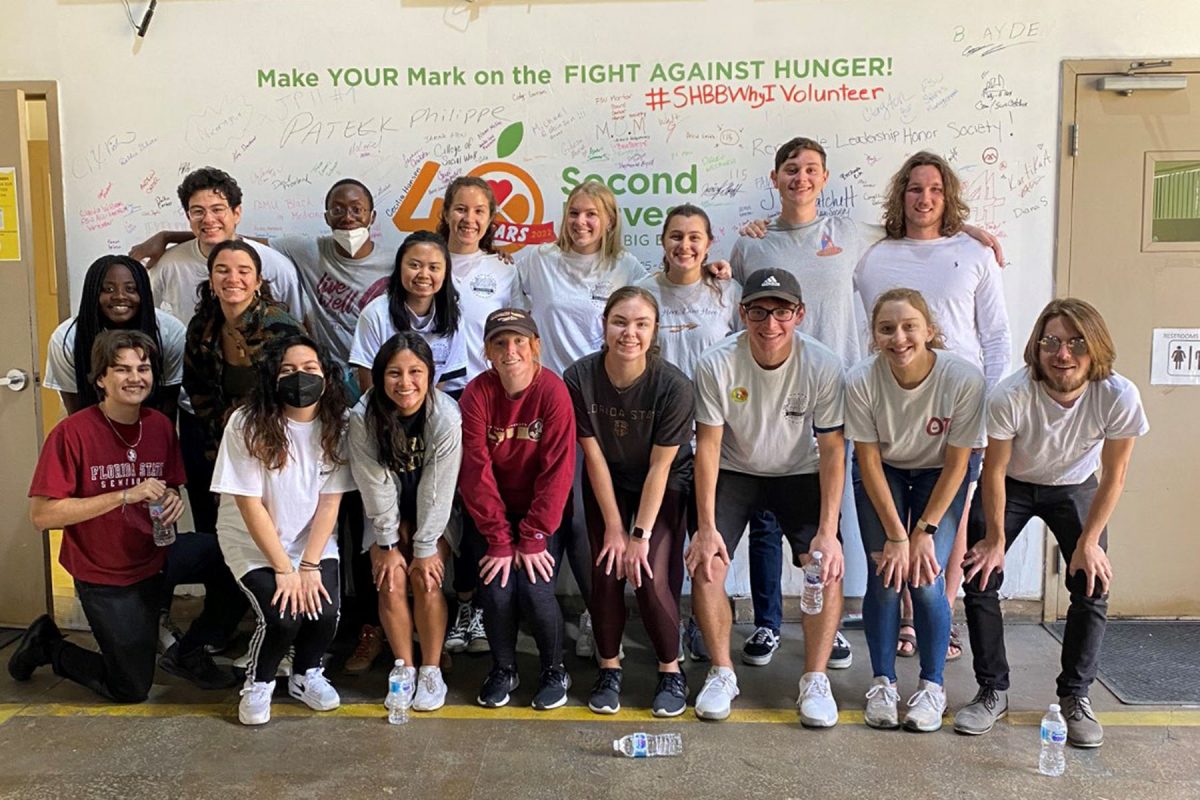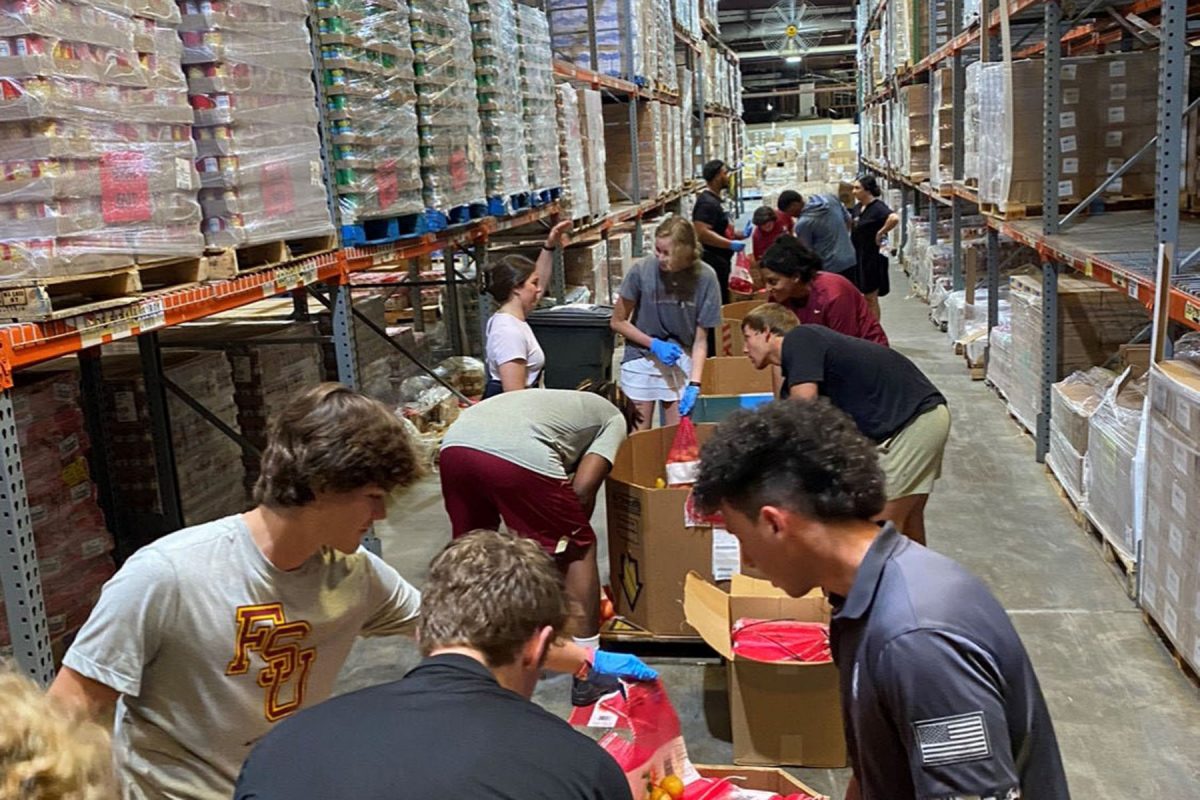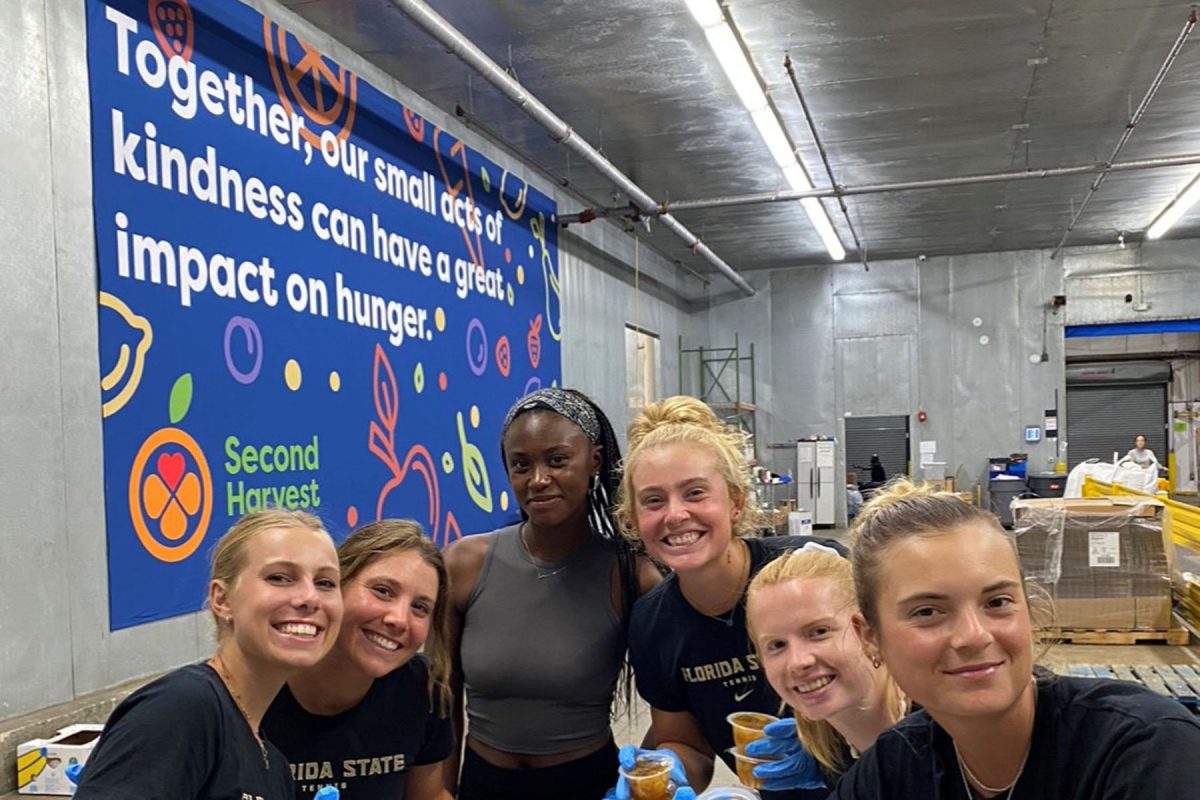
Florida State University students play a pivotal role in supporting the Tallahassee economy. But beyond their economic contributions, students also make a significant impact through community engagement and service.
During the 2022-2023 academic year, more than 4,250 FSU students dedicated nearly 236,000 hours of service, worth an estimated $7.5 million, to nonprofit organizations.
“By volunteering and giving back, students can make a real difference in the lives of others and help build a stronger, more connected community,” said Amy Hecht, vice president for Student Affairs. “Acts of service not only benefit the organization and recipients, but also instill a sense of civic responsibility and social awareness in students. Students who volunteer are nurturing their own personal growth and development, as well as helping shape the future of our community.”
Local agencies served by FSU students in recent years include The Kearney Center, Project Annie and Second Harvest of the Big Bend Food Bank.
Positive impact
As the region’s primary source for charitable food, Second Harvest provides healthy food for those facing hunger and food insecurity throughout the 16-county Big Bend service area. They say they could not accomplish their vision without the help of FSU students.
“The value that Florida State students bring to Second Harvest is immeasurable,” said Ashleigh Wilson, communications coordinator at Second Harvest. “Students at FSU often help coordinate food drives, help with our daily operations and commit to consistently serving our community directly.”
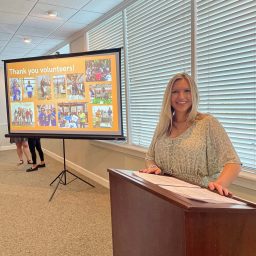
Second Harvest’s facility serves as the storage and distribution depot for more than 149 smaller frontline agency partners in their efforts to feed the hungry and educate the community about the fight to end hunger.
Kate Ash, a recent graduate from the Dedman College of Hospitality, found out about Second Harvest through a Leadership in Groups and Communities (LDR 2162) class during her sophomore year. The course is offered through the Leadership Studies program in the College of Education, Health, and Human Sciences.
During her time with Second Harvest, Ash served as a volunteer and intern, even bringing in groups from her sorority to donate their time. She has helped coordinate volunteers and organized the volunteer appreciation week.
“While it can be hard for students to take the time to volunteer, it gets you outside of your bubble,” Ash said. “You’ll realize that you are not only making a positive impact on the community, but that it can make a positive impact on you.”
How students find opportunities
The Center for Leadership and Service, the campus hub for service, is charged with helping students develop skills and knowledge to become more effective leaders and engage responsibly with communities. Through various programs and resources, the center aims to foster and sustain collaborative relationships among students, the FSU campus and the broader community.
EngageTLH, one program the center offers, fosters meaningful connections between the FSU and Tallahassee communities with the goal of making service accessible for students. The program offers service trips to community partner agencies on various days and times.
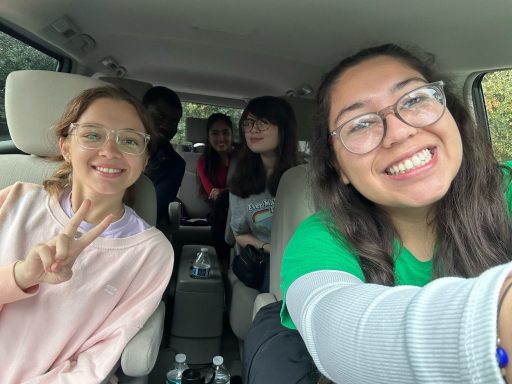
Trips have addressed such needs as animal care, K-12 academic development, environmental sustainability, elder care, food insecurity and homelessness.
“Students only commit to one trip when they sign up but often return when they find a cause they are passionate about,” said Maria-Paula McIntyre, who coordinates the EngageTLH program. “Many go on to take leadership roles, guiding other students through service as trained facilitators and helping them understand the community needs their service helps alleviate.”
Last year, about 800 students went on 160 service trips to 19 local agencies through the EngageTLH program, providing an economic impact of $48,700, according to the Independent Sector’s Value of Volunteer Time Report.
Joi Phillips, director of the Center for Leadership & Service, emphasized the importance of the reciprocal relationship between FSU students and the broader community.
“We appreciate the community allowing our students the opportunity to learn from and with them,” Phillips said. “We know that experiential learning as a high-impact practice provides students with the skills to serve as leaders in their communities and to make sustainable change that lasts beyond them and their time in Tallahassee.”
The center also offers programs such as the Service Scholar program, Service Leadership Seminar and the Conversation Café that connect students with opportunities focusing on the areas of leadership, service and civic engagement.
Sophomore Hillary Harbauer has used the center’s resources to get involved. She is a part of the Service Scholar program, is a facilitator for weekly service trips through EngageTLH, serves as a community ambassador and mentors students in service leadership Engage 100 courses.
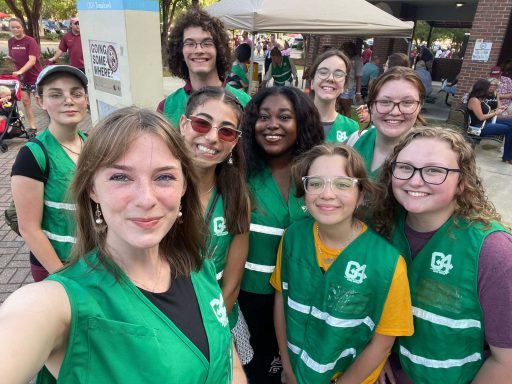
As a peer mentor through Engage 100, Harbauer facilitates classes that prepare new students to venture into service opportunities in the Tallahassee community.
“Whether we are learning about the Community Ambassadors program or EngageTLH, I support my students by sharing my experiences and sharing the insights I have learned and opportunities that I have found being a part of these programs,” Harbauer said.
She said that a large part of her undergraduate journey so far has been recognizing that there is much to be learned from those in communities different from your own: “My main driving factor is that I understand what it feels like to be overlooked based on your circumstances.”
Solving problems with research
Many FSU students choose to get involved with undergraduate research through the Center for Undergraduate Research and Academic Engagement (CRE) or pursue master’s and doctoral degrees through The Graduate School with a research focus on a particular issue. Some of these research projects grapple with issues that face the greater Tallahassee community, initiate conversations and propose collaborative possible solutions.
“Conducting community-informed research has the potential to benefit the student and the collaborating community in powerful ways,” said Latika Young, director of the CRE. “Beyond the typical research skills of design and analysis, students conducting research with and within communities practice the additional skills of networking and partnership development, self-reflexivity and communication skills, among others. These research projects often have instrumental impacts on communities by encouraging stakeholder engagement, modifying behavior and interventions and even informing policy and legislation.”

Senior Alycia Drapcho worked on the research project “GIS Analysis of Heavy Precipitation Events & Contamination in Lake Munson.” Community wastewater spills have the potential to adversely affect community health and water supplies. Drapcho utilized geographic information systems, to examine the possible spread of contaminants beyond initial spill points and the effectiveness of cleanup efforts.
“I think it means focusing on how the bigger, general issues like pollution are affecting us on a smaller, local scale and presenting that in an effort to raise awareness,” Drapcho said. “I was drawn to this project because, like I said, hearing how big issues affect us and not really being able to see it on a small scale, made me more interested to better grasp those concepts. FSU’s research facilities and connections with local researchers allowed us access to up-to-date data, as well as firsthand experiences and insights from researchers familiar with our subject matter and how it has affected the Tallahassee area.”
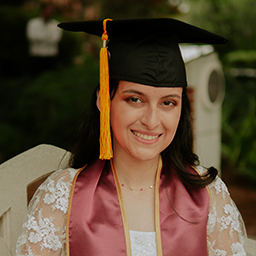
Camila Aponte, a recent graduate, worked on the research project “Assessing Public Participation in Redevelopment Projects: A Case Study of Tallahassee, Florida.” Her research focused on the social impact of participatory tools in neighborhoods undergoing redevelopment projects and resulted in proposed policy recommendations for future projects.
She says that the CRE and DeVoe L. Moore Center have provided her invaluable guidance throughout her research journey.
“Engaging in research with the Tallahassee community gave me insight into communities that have been impacted by local decision-making for generations,” Aponte said. “Working on this project allowed me to look at a topic that had never been explored before and having the opportunity to work and learn alongside other students, a team leader and mentor.”
Benefits of experiential learning
FSU student-service opportunities provide immense value to the community while also allowing students to gain valuable insights and have formative experiences that go beyond their time at Florida State University.
Experiential learning allows students to apply and strengthen their knowledge and skills through hands-on experiences outside the classroom. Other community engagement opportunities exist through internships, international study, creative activities and coursework.
“We’re grateful to give FSU students these unique opportunities to get outside the classroom, engage with the broader community and deepen their understanding of the issues that affect our region,” said Joe O’Shea, associate provost and dean of Undergraduate Studies. “This is the kind of work that inspires students to become the leaders of their generation and use their talents to make a lasting impact in the world.”
For more information about experiential learning opportunities at FSU, visit studentsuccess.fsu.edu.





